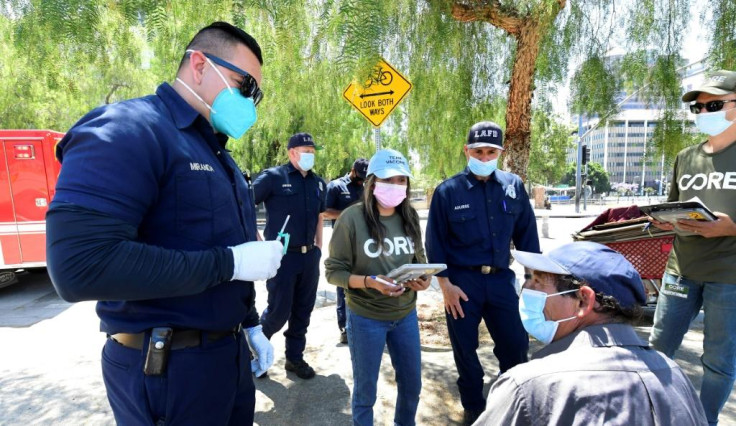US tops 600,000 Covid deaths, while New York and California drop curbs
The US passed the 500,000 death mark at the end of February, just under four months ago.
The US death toll from Covid-19 surpassed 600,000 on Tuesday, although officials hailed progress towards a return to normality as its world-leading vaccination program promised to turn the page on one of the worst health crises in American history.
The United States has racked up by far the largest national death toll -- ahead of Brazil and India -- after a heavily-criticized early response to the pandemic, but has since organized among the world's most effective immunization drives.
Progress against the coronavirus was underlined as New York announced more than 70 percent of adults had received at least one vaccine dose and the last of the state's restrictions could be lifted.
"There's still too many lives being lost," President Joe Biden said, noting that despite the daily number of dead dropping sharply, the continuing loss of life was still "a real tragedy."
"My heart goes out to all those who have lost a loved one," he said, speaking on Monday in Brussels as the Johns Hopkins University tally ticked close to 600,000.
Biden has set July 4 as the target date for 70 percent of US adults to have received at least one dose, but several states in the South are lagging far behind and the country might miss that goal.
In New York city -- where more than 33,000 died from Covid -- life took a major step forward as almost all restrictions were lifted.
"We have hit 70 percent vaccination," Governor Andrew Cuomo said.
"It is the national goal, and we hit it ahead of schedule. What does 70 percent mean? It means that we can now return to life as we know it."
California -- the first US state to enact a stay-at-home order just under 15 months ago -- also celebrated its "reopening day" Tuesday by lifting almost all pandemic-related social distancing and capacity limits.
Vaccinated people will be free to ditch their masks in nearly all of the nation's richest and most populous state, though exceptions will remain for locations including public transport, schools and hospitals.
"Finally we are here, June 15, to turn the page, to move beyond capacity limits... move beyond social distancing and physical distancing," Governor Gavin Newsom said at a ceremony to mark "the full reopening of the California economy."

"We saw way more death than we'd ever like to see -- we held way too many hands because families were not able to come into the unit," said nurse Helen Cordova, the first Californian to get a vaccine dose last December.
The capital Washington entered the 70 percent club on Monday.
Whether the US vaccination program succeeds in ending America's chapter of the pandemic will depend on authorities' ability to reach vaccine holdouts, who remain the most vulnerable to the coronavirus. Experts are particularly worried about the rise of the Delta variant, first identified in India.
The US campaign has been pushed hard since the authorization of the first vaccines in December, and peaked in April, with up to more than four million shots a day. But the pace has slowed rapidly since then.
Just over 52 percent of the US population, or 174 million people, have received at least one dose of one of the three vaccines authorized in the country, according to official data.
The US passed the 500,000 death mark at the end of February, just under four months ago. By comparison, it had only taken one month for the country to go from 400,000 to 500,000 deaths.
Experts are concerned about the rise of the Delta variant which now accounts for 10 percent of US cases and is likely to become the dominant strain in the coming months, according to experts.
Research from Britain, where it now accounts for 96 percent of cases, has shown it is 60 percent more transmissible than the Alpha variant, first identified in England.
Vaccine effectiveness for the Delta variant is comparable to that for the Alpha strain after two doses, but appears to be significantly lower after just one dose.
Health authorities are trying to convince more people to get the shot by increasing vaccination sites and helping people access them in partnership with private companies that can provide transport or childcare.
Some states have even launched lotteries which only vaccinated people can enter, with prizes of up to several million dollars.
Copyright AFP. All rights reserved.
This article is copyrighted by International Business Times, the business news leader





















